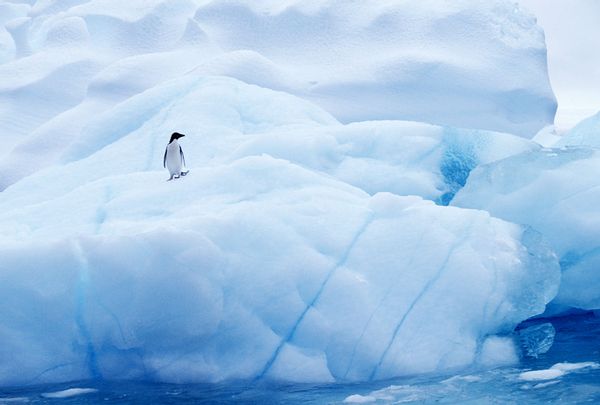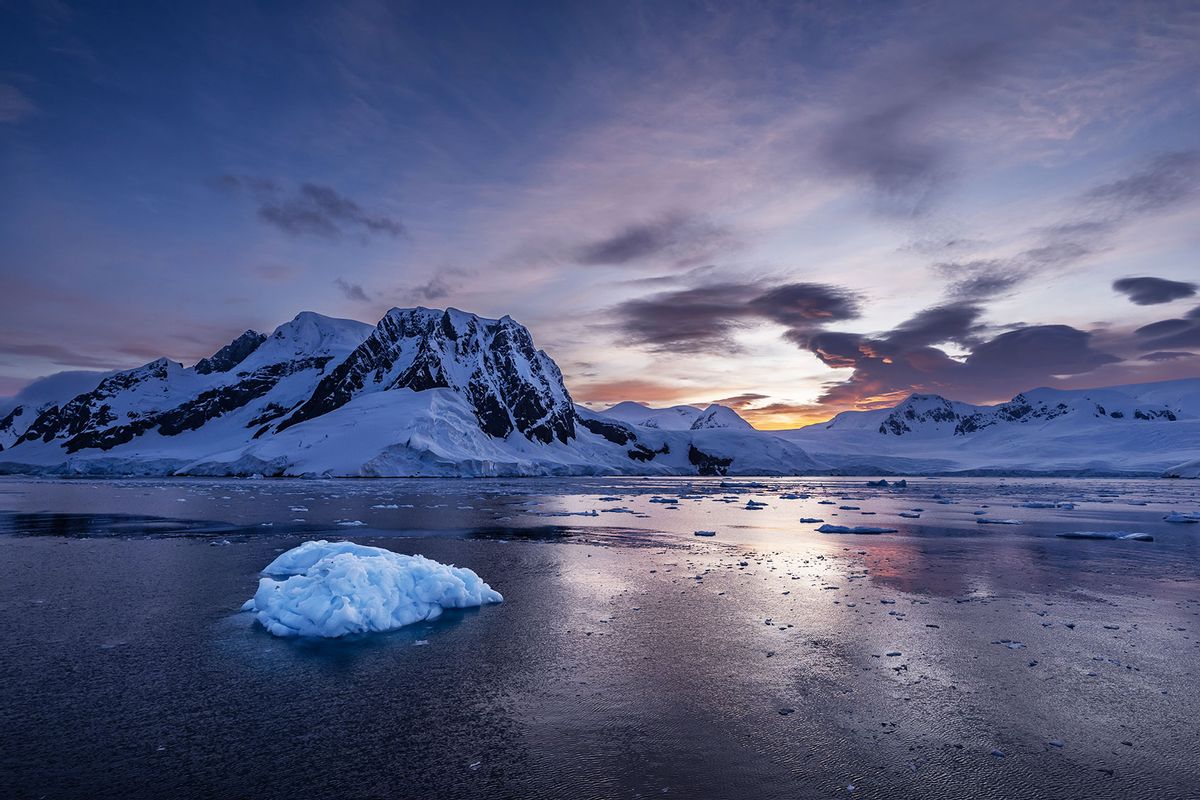Antarctica's sea ice has melted so fast — and the Earth has remained so much warmer than usual — that scientists are sounding a global alarm. The reason is simple: Antarctic sea ice that always comes back after first melting has not returned. Vast regions of Antarctic coast are exposed that were never bare before.
"If nothing had changed, we'd expect to see a winter like this about once every 7.5 million years."
As physical oceanographer Edward Doddridge put it, referring to this development as "unprecedented" simply "isn't strong enough. For those of you who are interested in statistics, this is a five-sigma event. So it's five standard deviations beyond the mean."
In other words: "If nothing had changed, we'd expect to see a winter like this about once every 7.5 million years."
Doddridge is far from alone among scientists raising the alarm about melting Antarctic sea ice. On July 19, the University of Maine's Climate Change Institute announced data showing that over the past year, the amount of Antarctic sea ice has shrunk by almost 2 million kilometers² (about 772,000 miles²). This is out of 15 million kilometers (about 9.4 million miles) that covers the continent. Meanwhile the World Meteorological Organization reports that sea ice levels around Antarctica are 17 percent lower than they should be at this time of year.
There are several reasons why this diminishing sea ice is a big problem. In addition to providing a habitat for animals like seals, penguins and krill, the ice helps regulate Earth's temperature by reflecting the Sun's heat back into space — a process known as ice-albedo feedback. Just as importantly, the sea ice helps feed ocean currents that provide nutrient-rich water where it is needed in ecosystems all over the planet.
Because Antarctica is home to 90 percent of the world's ice, massive floods would ensue if it melted. Indeed, if all of Antarctica's ice melts, global sea levels are predicted to rise by 190 feet. Even without that happening, however, it is estimated that the one-third of humanity which lives within 60 miles of ocean shore will experience radical changes to their way of living.
Want more health and science stories in your inbox? Subscribe to Salon's weekly newsletter The Vulgar Scientist.
It is estimated that the one-third of humanity which lives within 60 miles of ocean shore will experience radical changes to their lifestyles.
As ocean currents are disrupted by the melting sea ice, they will cause unpredictable — but almost certainly damaging — effects all over the world. A March study in the scientific journal Nature found that if freshwater reduces the salinity of major ocean currents, they will start slowing down. By reducing the flow of nutrients in the marine layers, the food chain will deteriorate, and before long humans will notice that their favorite foods are no longer available or are more scarce.
 PENGUIN ON ICEBERG IN THE ANTARCTICA (Getty Images)There may also be erratic extreme weather events such as floods, hurricanes and tropical storms. Finally the act of large quantities of melted sea ice entering the ocean could set off a chain reaction that leads to even more melting and more climate warming. As a report by the United Nations' body IPCC concluded, the slowing of ocean currents caused by sea ice melt could radical and permanent climate change during the span of a single human lifetime.
PENGUIN ON ICEBERG IN THE ANTARCTICA (Getty Images)There may also be erratic extreme weather events such as floods, hurricanes and tropical storms. Finally the act of large quantities of melted sea ice entering the ocean could set off a chain reaction that leads to even more melting and more climate warming. As a report by the United Nations' body IPCC concluded, the slowing of ocean currents caused by sea ice melt could radical and permanent climate change during the span of a single human lifetime.
We need your help to stay independent
There are also the unforeseeable ways that the melted sea ice will disrupt ecosystems. As a study published this month in the scientific journal Nature Sustainability explained, once one ecosystem collapses, that event can ultimately ripple across the planet and cause even more ecosystem collapses. The paper itself concluded that "as the strength of a main driver increases, the systems collapse sooner. Adding multiple drivers brings collapses further forward, as does adding noise and the two effects can be synergistic."
"I think that, with climate change and its associated extreme events, [they] will put additional stress on the world's ecosystems, which are already under tremendous pressure," Professor Simon Willcock of Rothamsted Research and Bangor University, who co-authored the study, told Salon by email at the time. "This might cause some ecosystems to collapse surprisingly quickly."

Shares